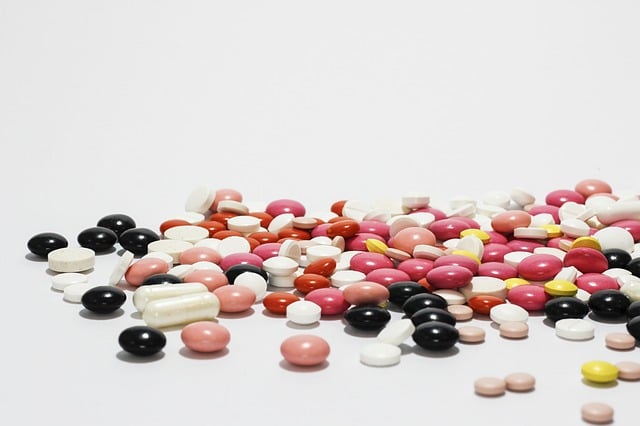Cystic acne is not regular acne. These large firm pimple form deeper within your skin compared to other types of pimples. Cystic acne tends to not only be larger, they are more painful, and more likely to leave scarring. Cystic acne is BAD NEWS! Even though over 90% of all people will probably develop some kind of pimple problem at some point in their lives, only a portion of those people will be unlucky enough to get stuck with the WORST KIND of pimples: cystic, also known as nodular, acne. If you want to dodge the bullet when it comes to this kind of zit, you need to understand the causes of cystic acne so you can learn to minimize or even prevent its outbreaks.
Cystic zits form just like regular pimples with a few key differences
All pimples are simply results of problems you skin develops during its normal processes. Your outer skin layer has many tiny holes called pores. Each pore has a hair follicle and contains the opening of sebaceous glands. These glands let out an oily substance that’s part-liquid and part-solid called sebum. Sebum is is crucial to keeping your skin soft and supple. It also provides lubrication for healthy, well-nourished hair and skin. To do its job properly, sebaceous glands need unblocked pores so sebum flows naturally.
When skin pores and their accompanying hair follicles get blocked up due to dead skin cells, bacteria buildup, dirt, or pollution, or other types of debris, acne can form. These are triggers but not actual causes of acne.
The first step to prevention: be mindful of the different types of acne
When dirt, skin cells, or other debris just plugs up your pores, whiteheads and blackheads may form. Whiteheads form when your plugged up pore fills up with pus. These occur near the surface of your skin and can be popped. Blackheads are formed when the blockage of your pore remains solid and doesn’t fill up with pus. Called a ‘comedone,’ the blockage turns into a dark color due to exposure to air (it isn’t due to dirt). These are non-inflammatory and can be squeezed out of your skin.
On the other hand, if bacteria gets inside your blocked sebaceous glands, bacterial infection will swell up your sebaceous glands as these microbes continue to multiply. The result is a very swollen infectious, red, or pus-filled cyst deep within your skin. This is cystic acne and, if handled the wrong way, can lead your skin scarred and looking pitted.
Since cystic acne is simply a more severe form of acne that forms deeper within your skin, you should aim to minimize acne in general.
How to prevent cystic acne
While there is no one universal cause for skin pore blockages (which happen fairly regularly) turning into pimples, there are several factors you should consider to decrease your chances of getting pimples in general.
Genetic factors – Sadly, some people are just predisposed to acne. Their heredity plays a big role in the size of their sebaceous glands and pores. Their genes also influence the overall activity level of their sebaceous glands. The good news? If you noticed that your big pores and active oily skin genetically predisposes you to acne, you can choose to be more proactive in preventing all types of acne-especially cystic acne-by following the tips below. Remember: genetic predisposition doesn’t mean you’re doomed to suffer from painful zits! Just be more cautious about the follow factors that impact your skin.
Hormones – menstrual periods, puberty’s onset, pregnancy, and other situations that lead to fluctuations in hormone levels can wreak havoc with the sebum your skin releases. The more erratic your skin’s oil level, the higher the likelihood of blocked pores and, by extension, acne.
Clothing – Any clothing material that comes in close contact with your skin can produce sweating and trap dirt. Try to avoid wearing headbands and scarves for long periods of time. Give your skin lots of time to breathe.
Your hairstyle and hair care – Bangs may look great on you but if your hair irritates large patches of your face’s skin, this can lead to increased chances of clogged pores and acne. Prolonged hair contact can also lead to excess sweating and oil secretion and accumulation. You might want to stick to hairstyles that leave your face open. Similarly, don’t let your hair get oily. The excess oil in your hair might irritate your skin or add to the excess oil your skin is already producing.
Oily makeup – Be careful when picking among different makeup products. Some products have too much oil and this can lead to your skin clogging up more often than normal. Pimples aren’t usually far behind if your makeup clogs up your skin regularly enough. Do yourself a favor and use only make up that has been formulated not to clog up your pores. These makeup are described as ‘non-comedogenic.’ This advice also applies to hair products. Please note that even if you were to use non-oily makeup, don’t leave it on overnight.
Abnormally High levels of skin bacteria – While your skin will always have some bacteria on it due to its exposure to the elements, too much bacteria can convert your skin’s sebum into very irritating compounds that inflame your skin. Inflamed skin is more likely to suffer from clogged pores.
 Medication – By impacting your hormone levels, the medication you take can play a significant role in acne formation. Be mindful of such medication types like lithium, iodides, phenytoin, corticosteroids, anabolic steroids, and, of course, birth control pills. Ask your doctor for alternatives that have less impact on your hormone balance.
Medication – By impacting your hormone levels, the medication you take can play a significant role in acne formation. Be mindful of such medication types like lithium, iodides, phenytoin, corticosteroids, anabolic steroids, and, of course, birth control pills. Ask your doctor for alternatives that have less impact on your hormone balance.
How not to make things worse on your skin
Try to cut down on sweating – Don’t put yourself in a situation where you’re sweating heavily. Go indoors more. Turn on the air conditioning. Avoid high humidity areas.
Don’t wash your skin excessively – While you should keep your skin clean, excess washing is not going to make your acne go away. Technically speaking, it is caused by your skin blocking up instead of dirt contact. Dirt may get in contact with your skin but this doesn’t automatically mean your pores will get blocked. When you wash your skin excessively, you may end up inflaming your skin and your acne problem might only get worse!
Try to keep stress under control – Your mental state has a big impact on your skin’s ability to avoid inflammation. If you’re feeling drained or burned out all the time, your body’s normal processes can become suppressed. Leave work issues at work. Try to take some time out for yourself. Maybe you should even adopt a mindfulness or meditation practice. Whatever it takes, try to re-establish some sense of inner calm.
Avoid picking at your face – Try not to handle your face too much during the course of a day.
The Final Word
Even though the process in which pores block up and how these blockages turn into acne are well-understood, the specific causes that turn blockages into cystic acne are unknown. Make things easier on yourself by familiarizing yourself with the factors that play into cystic acne causes listed above. Figuring out how to prevent cystic acne in your specific case requires a holistic approach.
